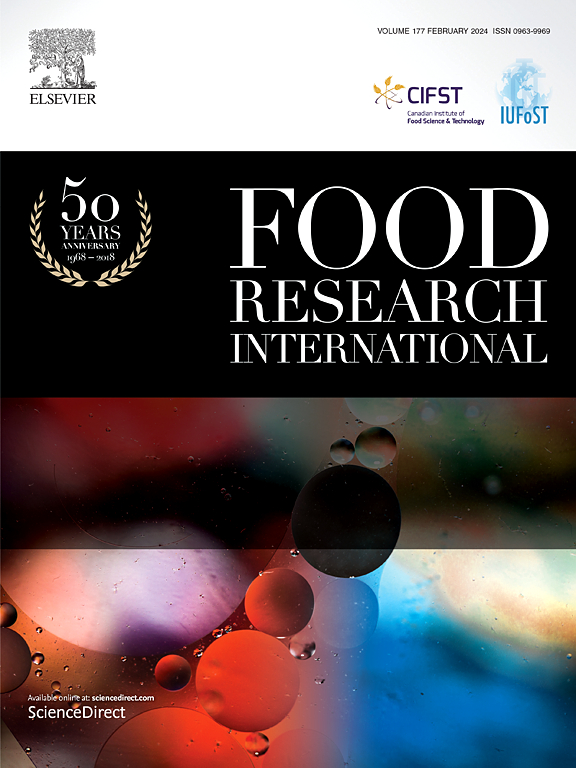Plant polyphenols delay aging: A review of their anti-aging mechanisms and bioavailability
IF 7
1区 农林科学
Q1 FOOD SCIENCE & TECHNOLOGY
引用次数: 0
Abstract
Aging increases the risk of health deterioration, which is a complex process driven by many interconnected mechanisms through multiple signaling pathways, including oxidative stress, inflammation, mitochondrial dysfunction, and intestinal environmental disorders. Plant polyphenols are secondary metabolites found in various plants, including phenolic acids, flavonoids, lignans, stilbenes and other phenolic compounds. These compounds exhibit a range of physiological functions, such as metabolic regulation, cardiovascular protection. Recently, plant polyphenols have gained considerable interest due to their potential to delay aging by suppressing oxidative stress, inhibiting inflammation, and improving mitochondrial function and intestinal environment. However, age-related changes in digestion, absorption, and gut microbiota composition can adversely affect the bioavailability of plant polyphenols, thereby diminishing their therapeutic efficacy. This article reviews the significant role of plant polyphenols in delaying the aging process and explores the underlying mechanisms involved. It also presents the current research status on the bioavailability of plant polyphenols and emphasizes that age-related gastrointestinal changes, such as decreased enzyme activity, altered gastrointestinal motility and imbalances in the gut microbiota, are key factors influencing polyphenol bioavailability in the elderly, encouraging to carry out research on the bioavailability of plant polyphenols in the elderly in the hope of developing novel anti-aging strategies.

植物多酚延缓衰老:其抗衰老机制和生物利用度综述
衰老增加了健康恶化的风险,这是一个复杂的过程,由许多相互关联的机制驱动,通过多种信号通路,包括氧化应激、炎症、线粒体功能障碍和肠道环境紊乱。植物多酚是存在于多种植物中的次生代谢产物,包括酚酸、类黄酮、木脂素、二苯乙烯等酚类化合物。这些化合物表现出一系列的生理功能,如代谢调节,心血管保护。近年来,植物多酚因其通过抑制氧化应激、抑制炎症、改善线粒体功能和肠道环境来延缓衰老的潜力而引起了人们的广泛关注。然而,与年龄相关的消化、吸收和肠道菌群组成的变化会对植物多酚的生物利用度产生不利影响,从而降低其治疗效果。本文综述了植物多酚在延缓衰老过程中的重要作用,并探讨了其潜在机制。介绍了植物多酚生物利用度的研究现状,强调年龄相关的胃肠道变化,如酶活性下降、胃肠动力改变、肠道菌群失衡等是影响老年人多酚生物利用度的关键因素,鼓励开展老年人植物多酚生物利用度的研究,以期开发新的抗衰老策略。
本文章由计算机程序翻译,如有差异,请以英文原文为准。
求助全文
约1分钟内获得全文
求助全文
来源期刊

Food Research International
工程技术-食品科技
CiteScore
12.50
自引率
7.40%
发文量
1183
审稿时长
79 days
期刊介绍:
Food Research International serves as a rapid dissemination platform for significant and impactful research in food science, technology, engineering, and nutrition. The journal focuses on publishing novel, high-quality, and high-impact review papers, original research papers, and letters to the editors across various disciplines in the science and technology of food. Additionally, it follows a policy of publishing special issues on topical and emergent subjects in food research or related areas. Selected, peer-reviewed papers from scientific meetings, workshops, and conferences on the science, technology, and engineering of foods are also featured in special issues.
 求助内容:
求助内容: 应助结果提醒方式:
应助结果提醒方式:


